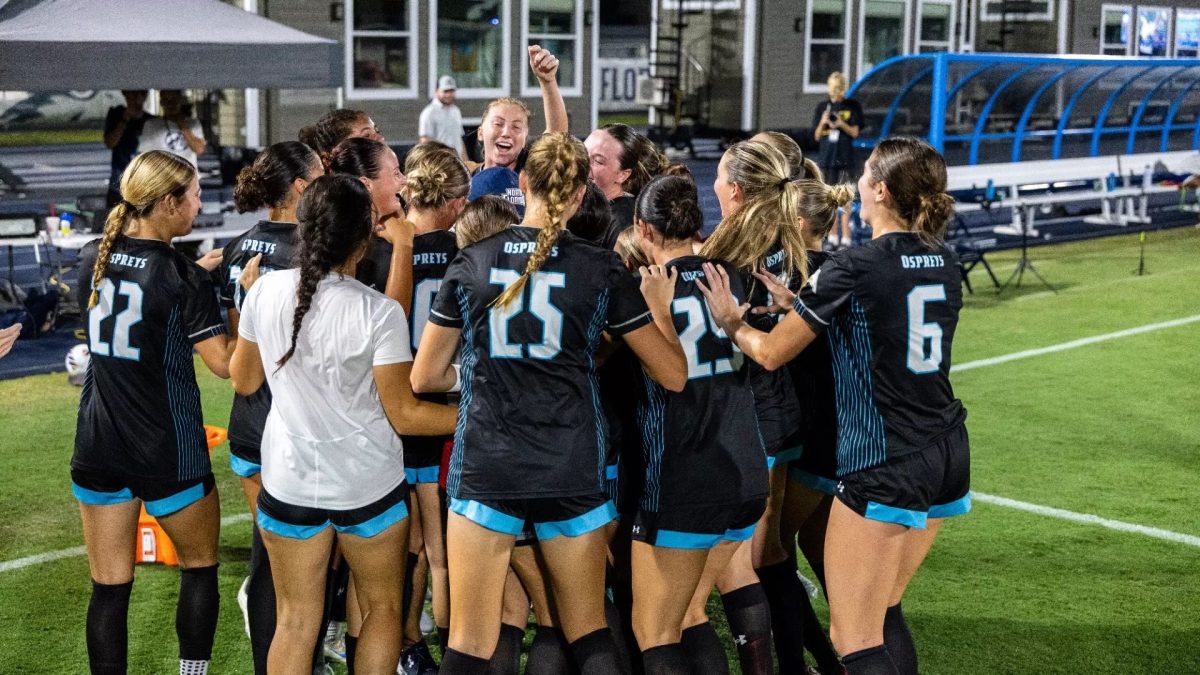By: Dargan Thompson, Staff Writer
In the midst of criticism of higher education, grade inflation has become a hot topic. Although studies show grades at many American universities have risen, the average GPA at UNF has remained relatively consistent for the past 10 years.
According to a study in the Teachers College Record, grades in American universities have been on the rise since the 1960s and have risen even more dramatically since the 1980s. The study, conducted by professors Stuart Rojstaczer from Duke University and Christopher Healy of Furman University, shows the trend in higher grades is especially prevalent at private schools.
Rojstaczer collected data from over 230 schools to create gradeinflation.com, a website detailing trends in grade distribution. The data show universities have been giving out an increasing number of A’s since the late 1980s. Data show that, on average, A’s represent 43 percent of all letter grades.
“America’s institutions of higher learning gradually created a fiction that excellence was common, and that failure was virtually nonexistent,” Rojstaczer and Healy wrote in the report.
UNF does not appear to be a big part of the trend in rising grades. The UNF office of institutional research and assessment does not keep data about grade distribution, but its data show the average GPA for undergraduates has hovered right around a 3.0 for the past 10 years.
However, at the University of Florida, the percentage of A’s given rose from around 30 percent in 1995 to almost 45 percent in 2006. Similarly, the average GPA for undergraduate students climbed steadily from just under a 3.0 to a 3.29 in the same years, according to data from UF’s office of institutional planning and research.
“There does seem to be a trajectory of rising grades in higher education,” said Jeff Coker, dean of undergraduate studies at UNF. The question, he said, is the reason behind the rise.
Rojstaczer blames the trends in rising grades on a change in the purpose of grading from being an internal measure of performance to an external method of evaluating a school and its graduates. He also cites professors gradually lowering their standards.
However, some disagree with the idea that the increase in grades is due to professors being too generous in their grading. An article included in The Chronicle of Higher Education in 2002 argued that the causes of higher grades could be explained by students taking fewer classes outside their area of interest or withdrawing from classes in which they are doing poorly.
Coker said the reasons are hard to determine without more research. One explanation, he said, could be that student evaluations of professors have become increasingly central to the university system. Professors trying to gain tenure may give higher grades to get better evaluations, he said. Another explanation could be a change in teaching attitudes, with colleges becoming more student centered.
Jenny Stuber, a UNF assistant professor of sociology, said she has not witnessed a problem with grade inflation at UNF. Many professors are strict with their grades, she said, and feel a student should have to work for an A.
“A’s should be a reward, not an expectation,” Stuber said.
Russell Turney, an instructor in the UNF Department of English, agreed that an A grade should be for exceptional work, not just work that meets expectations. He said the administration at UNF has pushed the faculty to take grading standards seriously and set some consistent standards across the university.
Turney said he thinks grade inflation, which occurs when teachers vary from personal grading standards, is not as big of an issue as it is made out to be. He said he thinks the issue of rising grades is due to a systematic fault. Schools value a student’s GPA over anything else, he said.
Turney said the push for grades causes students to lose interest. Instead of challenging themselves, they do just enough work to attain good grades. But there is little connection between learning and grades, he said. At times, students may earn an A in a class without learning much, while at other times, they may get a C in a class where they learned a lot.
“We need to put less emphasis on grades as a measure for student learning,” Turney said.
Coker said at UNF, more attention is paid to assessing student learning rather than just grades.
A GPA is one measure of a student’s ability, he said, but often it is not the thing that makes the difference for entry to graduate schools. Obviously students should try to get good grades, Coker said, but employers and graduate schools also want to know what experiences students have had. Sometimes having been involved in organizations or having done research is more important than a GPA.
Email Dargan Thompson at staff4@unfspinnaker.com.















